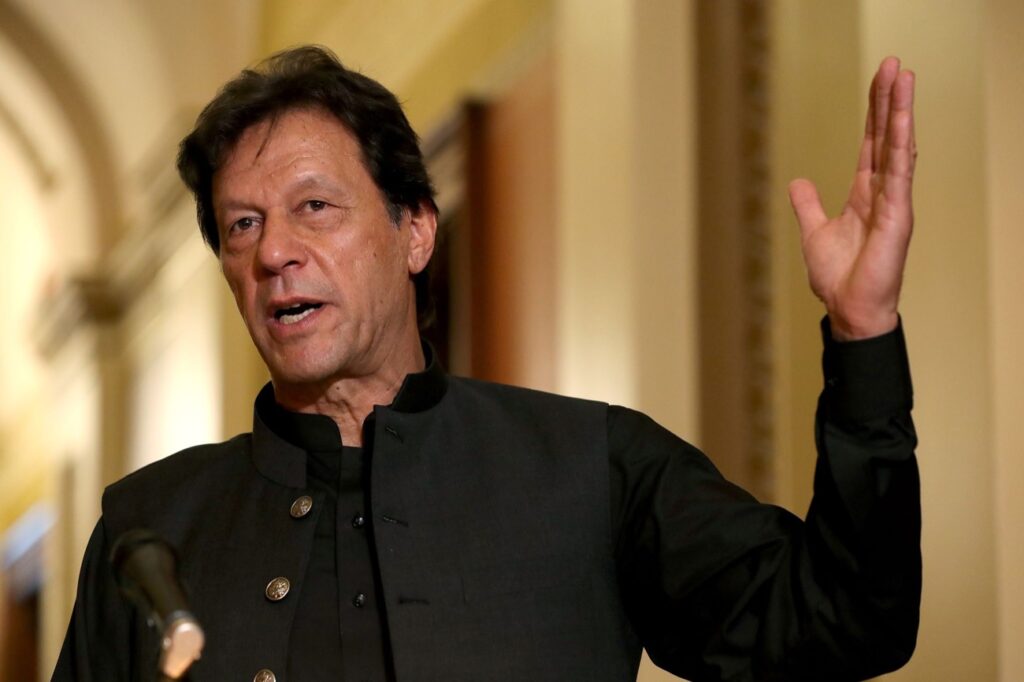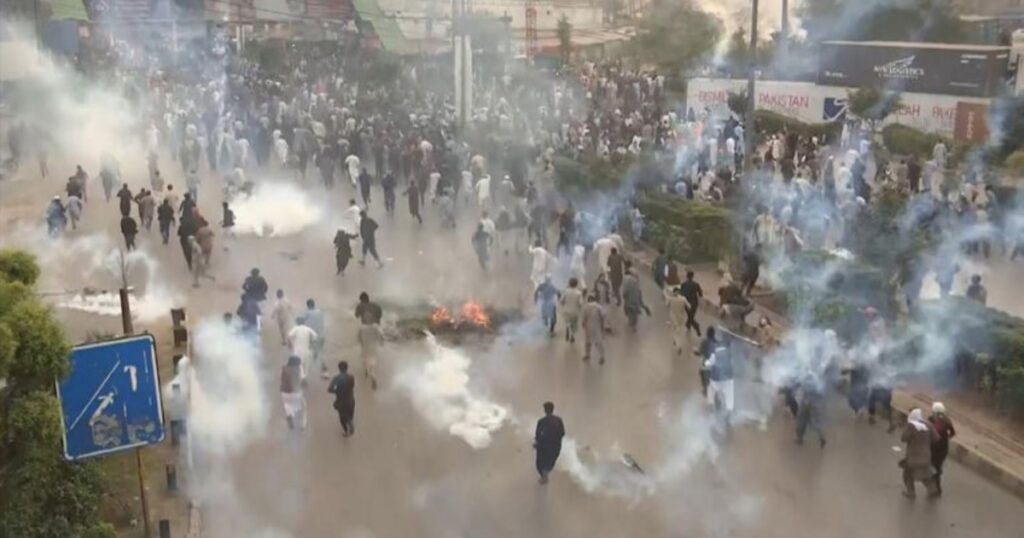
Byline: Ishtiaq Ahmed
The escalation of political unrest in Pakistan is a real worry for British Pakistanis, many of them have families, businesses and other investments there.
For those planning to visit the country over the summer find there plans in tatters. It is simply not safe to visit in the current evolving volatile and unsafe climate. It’s a very sad turn of events.
The arrest of Pakistan’s former Prime Minister, Imran Khan, has further exacerbated the political impasse in the country already beleaguered by mounting political and economic crisis.
The foreign exchange reserves have dwindled, barely enough to pay for a month’s imports. The IMF bailout package of $6.5bn remains suspended. Yet, the political leadership remains unperturbed by these challenges.
Instead, they rather be playing out their petty and egoistic wars of attrition against each other. They must take the full blame for Bringing Pakistan to the brink of civil war.
Khan’s arrest is the latest twist in a political and economic crisis that pits the popular former prime minister against the military and the government.
The police and the army are out in full force to contain and prevent protests but with little success. The Punjab provincial government has called in the military to help maintain law and order.
Large scale unconfirmed arrests are being reported following attacks on public buildings and government / military offices along with some deaths.

Mobile internet services are restricted across the country.
The protesters are being threatened with criminal suits and threats of their personal records being amended to show criminality. Obviously, this is to deter and frighten off people from participating in protests.
The army establishment is accused by Khan’s PTI party supporters for orchestrating the arrest of Imran Khan. Meanwhile, Khan’s allegations that the army was behind the assassination attempt on his life, has further incensed the military.
The political situation in Pakistan has worsened following the arrest of Khan. These events have transpired in haste following the failure to reach a political compromise between the caretaker government and the PTI.
I for one, was surprised by the PTI’s willingness to come to the negotiating table after having consistently refused to entertain any such possibility. Very indicative of PTI’s fluid political thinking and turns and twitches.
It suited the government politicians to enter into the talks with PTI for a number of mitigating reasons: one, to suggest that it is Imran Khan that has been intransigent all along and not them; secondly, that any protracted negotiations would help them to further delay the elections; thirdly, even if there was no desired outcome of the negotiations they could claim reasonableness and blame Imran Khan for the failure to reach a compromise.
The last point being the precursor to Imran Khan’s arrest. There is an implied suggestion that both parties were pushed into the negotiations by the army establishment; and that the Americans, working in cahoot, for different but complimentary objectives, are acting upon their sentiment that Khan is inconsistent, and resent his unpredictable and accusatory tone towards them.
The arrest of Imran Khan on the account of corruption sounds hollow. I am not suggesting that he is innocent or that he should be treated differently if guilty, but for him to be singled out for the arrest on the charges of corruption in this manner by the regime whose every member should of right be behind the bars for looting and plundering the resources of the country for decades, seems out of place.
The role of the army establishment is enigmatic. It is held high by the public for being the protector of country’s borders but it’s role in the internal affairs of the country over the years is regarded nothing short of catastrophic. For this reason, the military establishment must take blame for what the country has come to be and the current turmoil.
We must stop the present tit-for-tat revengeful approach and return to our democratic chambers for finding political solutions to political problems. There is no other way forward for the nation.















